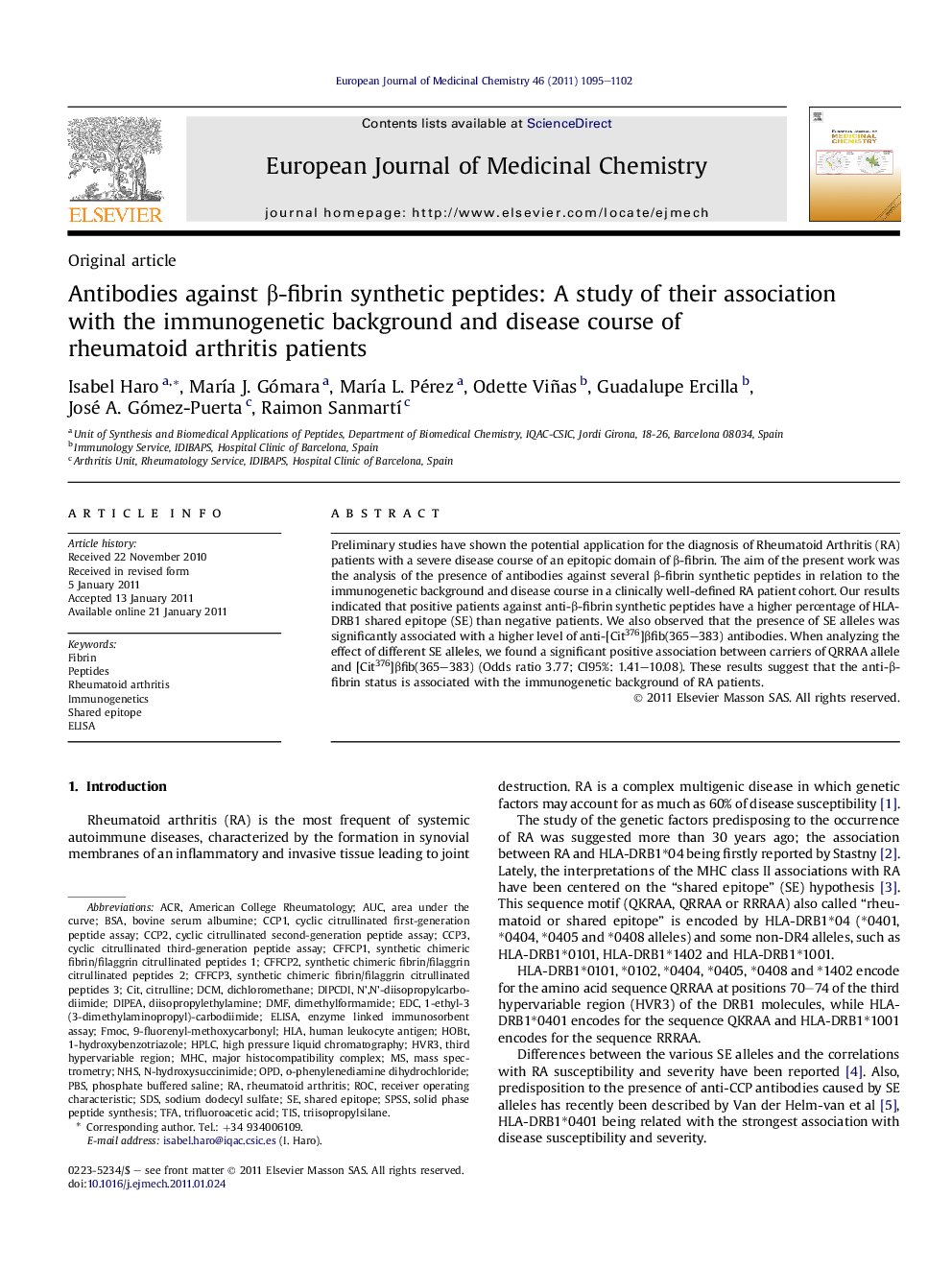| Article ID | Journal | Published Year | Pages | File Type |
|---|---|---|---|---|
| 1397560 | European Journal of Medicinal Chemistry | 2011 | 8 Pages |
Preliminary studies have shown the potential application for the diagnosis of Rheumatoid Arthritis (RA) patients with a severe disease course of an epitopic domain of β-fibrin. The aim of the present work was the analysis of the presence of antibodies against several β-fibrin synthetic peptides in relation to the immunogenetic background and disease course in a clinically well-defined RA patient cohort. Our results indicated that positive patients against anti-β-fibrin synthetic peptides have a higher percentage of HLA-DRB1 shared epitope (SE) than negative patients. We also observed that the presence of SE alleles was significantly associated with a higher level of anti-[Cit376]βfib(365–383) antibodies. When analyzing the effect of different SE alleles, we found a significant positive association between carriers of QRRAA allele and [Cit376]βfib(365–383) (Odds ratio 3.77; CI95%: 1.41–10.08). These results suggest that the anti-β-fibrin status is associated with the immunogenetic background of RA patients.
Graphical abstractFigure optionsDownload full-size imageDownload as PowerPoint slideResearch highlights► Analysis of antibodies against β-fibrin synthetic peptides. ► Association with the immunogenetic background and disease course of RA patients. ► SE alleles significantly associate with anti-[Cit376]βfib(365–383) antibodies. ► Significant association between carriers of QRRAA allele and [Cit376]βfib(365–383).
